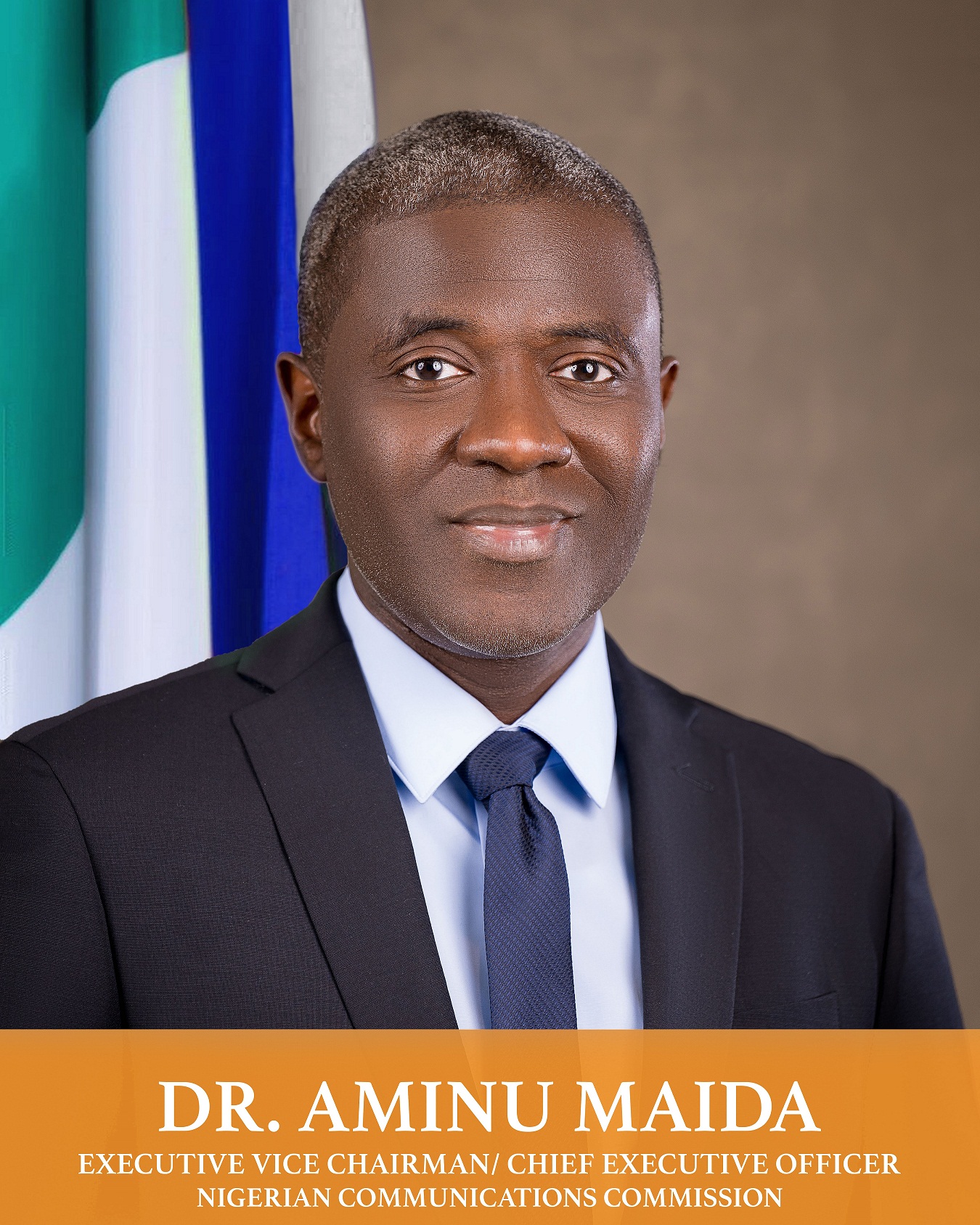The Executive Vice Chairman/CEO of the Nigerian Communications Commission (NCC), Dr. Aminu Maida, has harped on the increasing relevance of emerging technologies to the nation’s economic growth drive as the Commission continues to strengthen its collaboration with relevant stakeholders in telecom industry to review the current operating standards and introduce new measures in accordance with international best practices.
Maida spoke on the criticality of the emerging technologies in the nation’s politico-economic space at the Telecoms Industry Risk Management Conference organized by the Commission in Lagos recently.
Represented at the forum by the commission’s Head, Corporate Planning, Strategy & Risk Management Department, Kelechi Nwankwo, the EVC in his welcome address noted that the event availed all stakeholders an opportunity to elaborately discuss on the theme ‘Evolution and Future Risk Management in the Telecoms Industry: Harnessing Emerging Technologies and Trends’ and apply the lessons gained to enhance their operations.
The industry regulator said: “Telecoms Industry Risk Management Conference,” a gathering that brings together various stakeholders that includes- risk experts, academia, financial institutions, and professionals in telecommunication industry.
“In an era marked by rapid technological advancements, the telecommunications industry finds itself at the forefront of innovation, shaping the way we communicate, connect, and conduct business. As we navigate this dynamic environment, the need for effective risk management becomes increasingly paramount. Today, we stand at the crossroads of tradition and transformation, where emerging technologies and trends present both unprecedented opportunities and challenges.
“While we discuss the current landscape of 5G networks, which boast of wider attack surface due to the increased number of connected devices and denser network infrastructure, it is imperative to even cast our gaze into the future. We are witnessing the dawn of 6G technology, the next frontier in wireless communication. With promises of even faster speeds, lower latency, and groundbreaking applications, 6G has the potential to revolutionize the way we experience connectivity. However, with this advancement comes the responsibility to address new risks, from cybersecurity threats to ethical considerations, ensuring that we pave the way for a secure and inclusive digital future.
“Looking beyond, the prospect of 7G technology also looms on the horizon. As we contemplate the possibilities, we must acknowledge that with each generational leap, we face not only technological advancements but also a fresh set of challenges. Anticipating and managing risks associated with 7G will require collaboration, innovation, and a proactive approach to ensure the seamless integration of this technology into our interconnected world.
“In addition to the evolution of connectivity, we must consider the implications of emerging technologies such as quantum technologies (computing, sensing, and communications), advanced artificial intelligence, and Block Chain (distributed ledger) technologies. These trends, when harnessed effectively, hold the potential to transform our industry positively”, he added.
Maida also reiterated the NCC’s commitment to fostering an environment that encouraged innovation while prioritizing the security and stability of nation’s telecom infrastructure.
According to him, as Nigeria continues to navigate through 5G and the uncharted territory of the next generations of wireless technologies, the need for collaborative efforts among regulators, industry players, and other stakeholders has become imperative for sharing best practices, threat intelligence, resources and implementing robust risk management strategies.
He, therefore, charged all stakeholders in the telecoms industry to move beyond mere compliance and reactive measures, and begin to harness the power of these new technologies and trends to build a resilient industry.
Earlier in his speech, Nwankwo pointed out harnessing the power oe emerging technologies would facilitate resilience in the telecommunications industry.
According to him, with the focus on the theme of the conference, the NCC is embarking on a journey of exploration and discovery in a rapidly evolving landscape of the telecoms industry, which requires that stakeholders must thus analyse, adapt, and effectively manage the risks that accompany innovation and development in the industry.
He expatiated: “The fast-disruptive world of the telecoms industry has witnessed convergence of diverse technological advancements with the potential of reshaping our future. From 5G networks, the Internet of Things (IoT), and Artificial Intelligence (AI), to Cloud Computing and beyond, the possibilities are limitless.
“However, with great opportunities, comes great risks, and it is our collective responsibility to address these risks and possibly safeguarding the industry’s growth and sustainability”, Nwankwo added.
He described the conference as a testament to stakeholders’ collective commitment towards recognizing the evolving risks and challenges the telecoms sector is facing, while embracing the immense opportunities emerging technologies and trends bring.
The industry expert said: “The World Economic Forum (WEF) in a survey of global leaders on the five risks most likely to present material crisis on a global scale in 2024, reported AI-generated misinformation/disinformation as number two (2) and cyberattacks as number five (5). These two are technological risks. The number one (1) risk is extreme weather (environment) while numbers three (3) and four (4) are societal/political polarisation and cost-of-living crisis respectively, which are societal issues.
“Together, we will engage in discussions, gain key insights from industry experts, share experiences, and develop strategies to navigate through this ever-changing landscape. How we can mitigate technological risks and use technological innovations to provide solutions to address environmental, societal, economic (disruption of supply chains for critical goods & resources) and geopolitical (attacks on critical infrastructure) challenges, appears critical.
“The telecoms industry has gone through remarkable transformations, and it is our responsibility to stay informed, prepared, and proactive in managing the potential risks ahead”, Nwankwo stressed.
He urged participants at the event to actively engage in the various sessions and contribute to fruitful discussions, adding that by harnessing the collective inputs and experiences of the attendees, they can adopt some new approaches to risk management that will shape the future of the industry.






